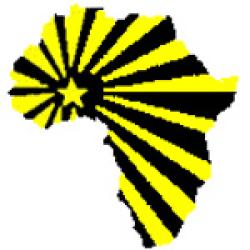
Published date
An Africanist group led by Robert Sobukwe and Potlako Leballo were frustrated by the multi-racial character of the African National Congress (ANC). They echoed the sentiments of Anton Lembede, one of the founders of the ANC Youth League (ANCYL), who argued "It is only African Nationalism or Africanism that can save the African people". The Africanists refused to cooperate with Coloureds, Indians and liberal Whites and envisaged, according to Sobukwe a "government of the Africans, by the Africans, for the Africans". They considered ANC policies insufficiently radical to initiate change and broke away to form the Pan Africanist Congress (PAC). The PAC grew so rapidly that it was nearly as powerful as the ANC within a year, especially in the southern Vaal townships (Soweto and Sharpeville, near Vereeniging) and in the Western Cape.
The PAC, together with other Black political organisations, was banned in South Africa after the Sharpeville Massacre in March 1960. Within the next few years, the organisation set up offices outside of South Africa in Maseru, Dar es Salaam, London, Cairo, Accra and many other cities around the world, while sustaining a directed, positive action campaign within South Africa.
References
Muller, C.F.J. (ed)(1981). Five Hundred years: a history of South Africa; 3rd rev. ed., Pretoria: Academica, pp. 498, 499.|
South African History Online,Pan African Congress,from SAHO,[online] Available at www.sahistory.org.za [Accessed:3 April 2014]